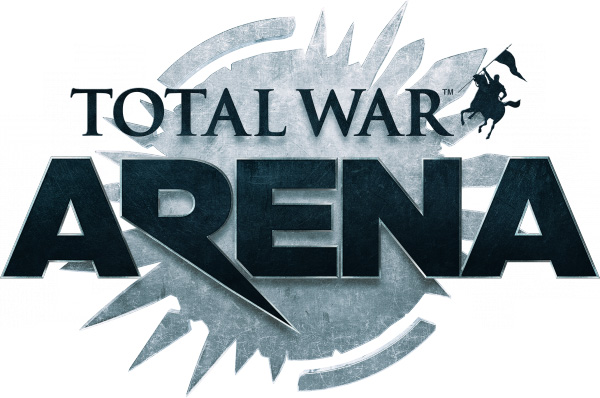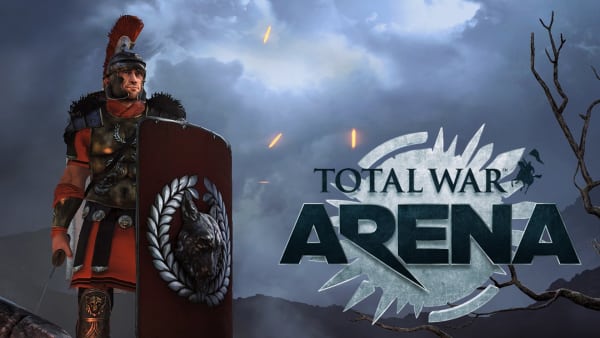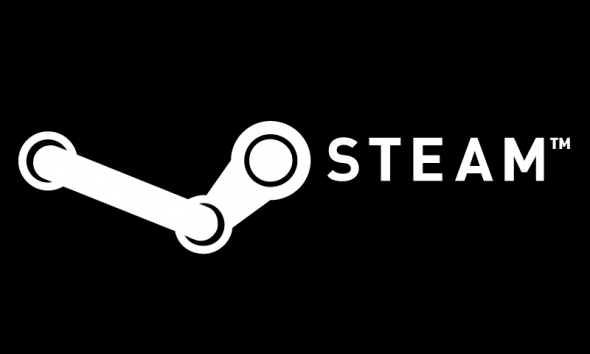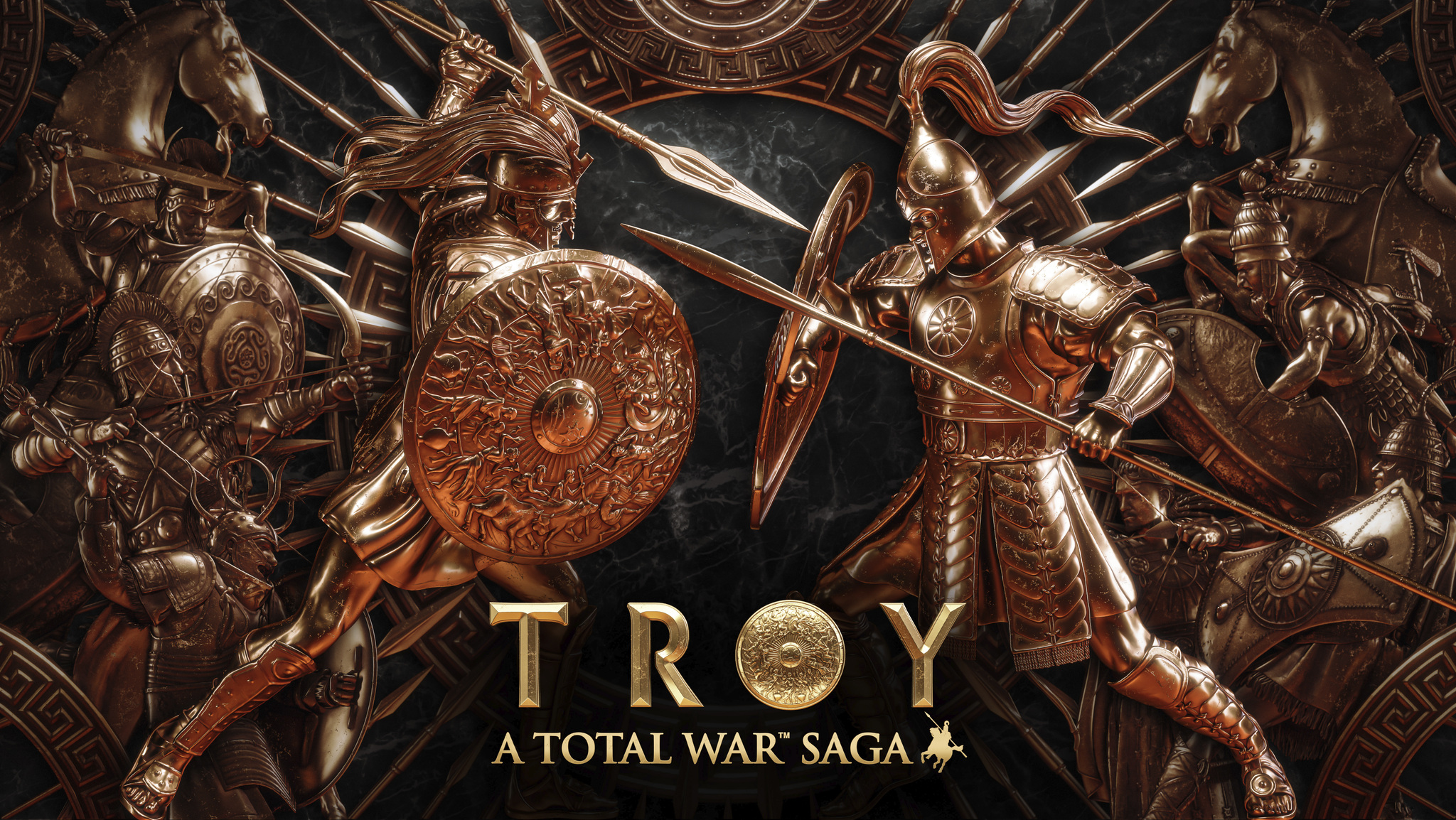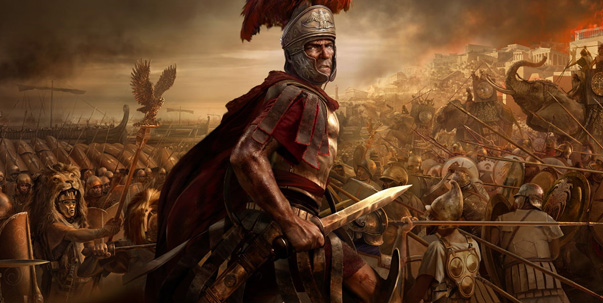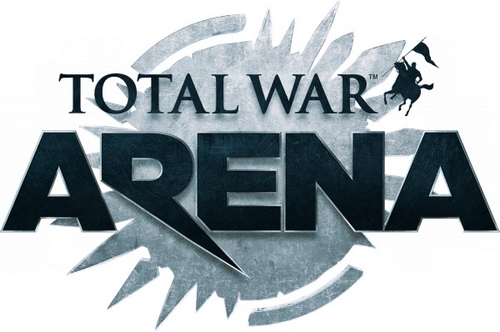
The 2013 announcement of a Free-To-Play, competitive entry in the Total War franchise was met with enormous buzz among strategy fans. Touted as more accessible than it’s predecessors (we were up to Rome II at the time), and promising immediate, gory gratification to those who hungered less for strategy and more for combat, ARENA was designed to carry the franchise into the largely unexplored middle-ground between its strategy roots and the e-sports-friendly MOBA field, which, at the time, was dominating the competitive gaming scene.
Now, five years later, the curtain has been raised on a title that will polarise the very strategy die-hards that have waited so patiently for it, and may indeed attract an entirely new fan-base to Creative Assembly’s highly revered Total War series. But is this new following a fickle one, and did Creative Assembly sell the soul of their series for the chance at short-term profits?
Let’s start with the combat, since that’s about all there is to ARENA. Battles are a microcosmic, albeit highly streamlined, version of their old selves. The removal of some of the series’ more taxing strategic concepts, such as unit fatigue and weather effects, actually ups the pace of decision making and leads to a much more dynamic and immediate flow of battle. Of course, we’ve shed a little realism in the process, but the fast-paced style of combat promoted in ARENA is an attractive one, given the game’s competitive format.
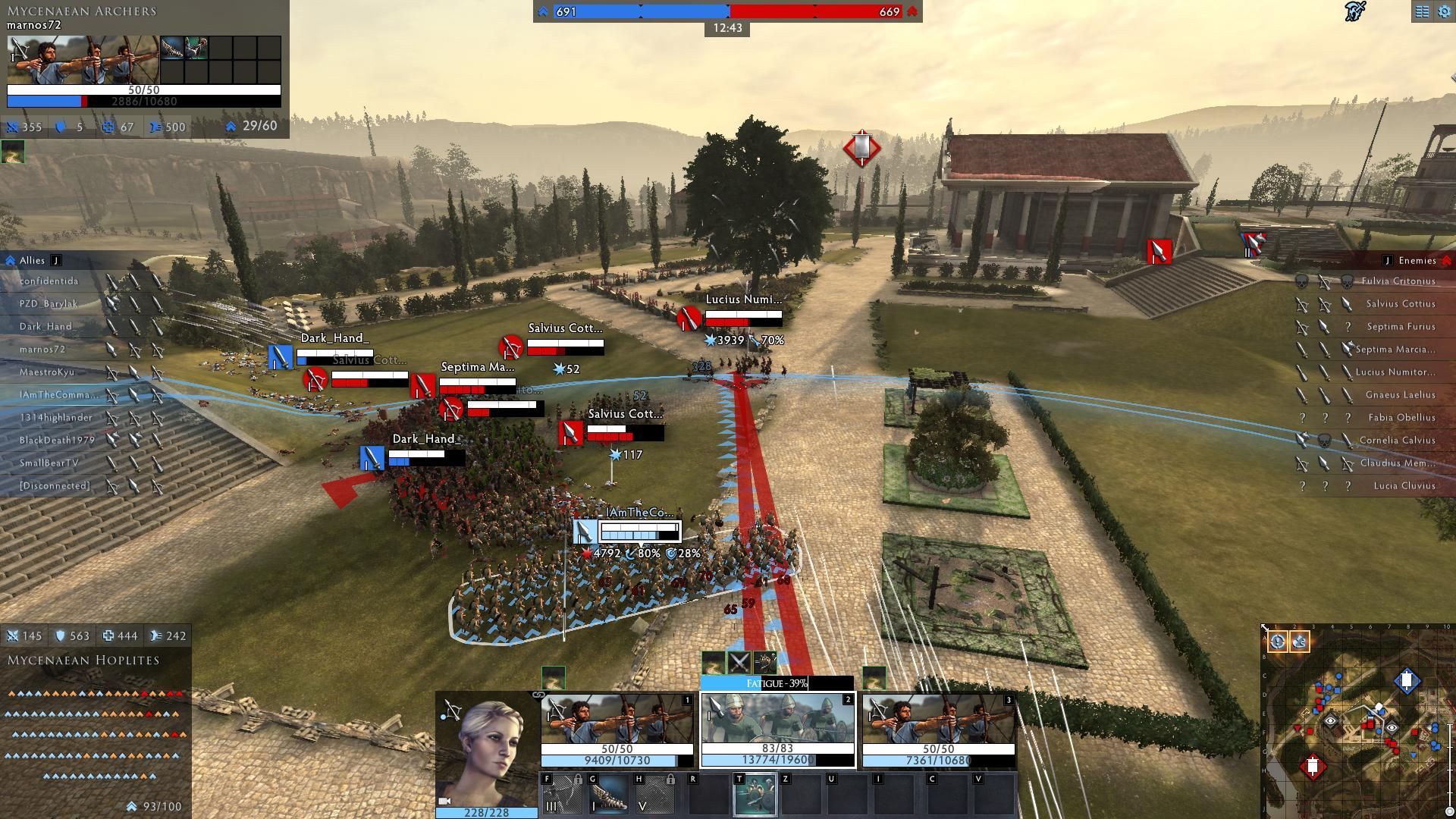
It’s also a refreshing change to have a reduced unit count, which actually allows for a greater degree of control over the few units you are managing. In that you’re no longer responsible for 30 individually controlled units, you have time and focus spare to maneuver your forces with a greater deal of finesse than we’re used to in Total War titles. Gone are the days of armies so big that you can’t practically micromanage them in real time. That’s not to say that battles have lost their feeling of size and magnitude. Although your personal unit count is reduced, there are 19 other combatants on the field, each with their own slew of customised units ready to burn and pillage.
Large-scale teamwork doesn’t just play perfectly into ARENA‘s combat mechanics – it amplifies them, allowing for levels of strategic interoperability that might not have been seen in an RTS before. ARENA is almost a team sport, in which the victim of your sneak attack is distracted and dispersed by a comrade’s arrow volley, your helpless archers are valkyried by an ally’s cavalry charge, and your mate’s retreating soldiers are bulwarked by your own armoured phalanx. It really is glorious to watch and be part of, if you’ve ever had a passion for team strategy.
The most significant mechanical addition is the increased impact of shared sight-lines, which basically dictate what you can and cannot see on the battlefield. If none of your allies have visibility on the enemy unit sneaking up behind you, covered by a wall, then neither do you. That is, until they’re halfway up your arse, which is often too late.
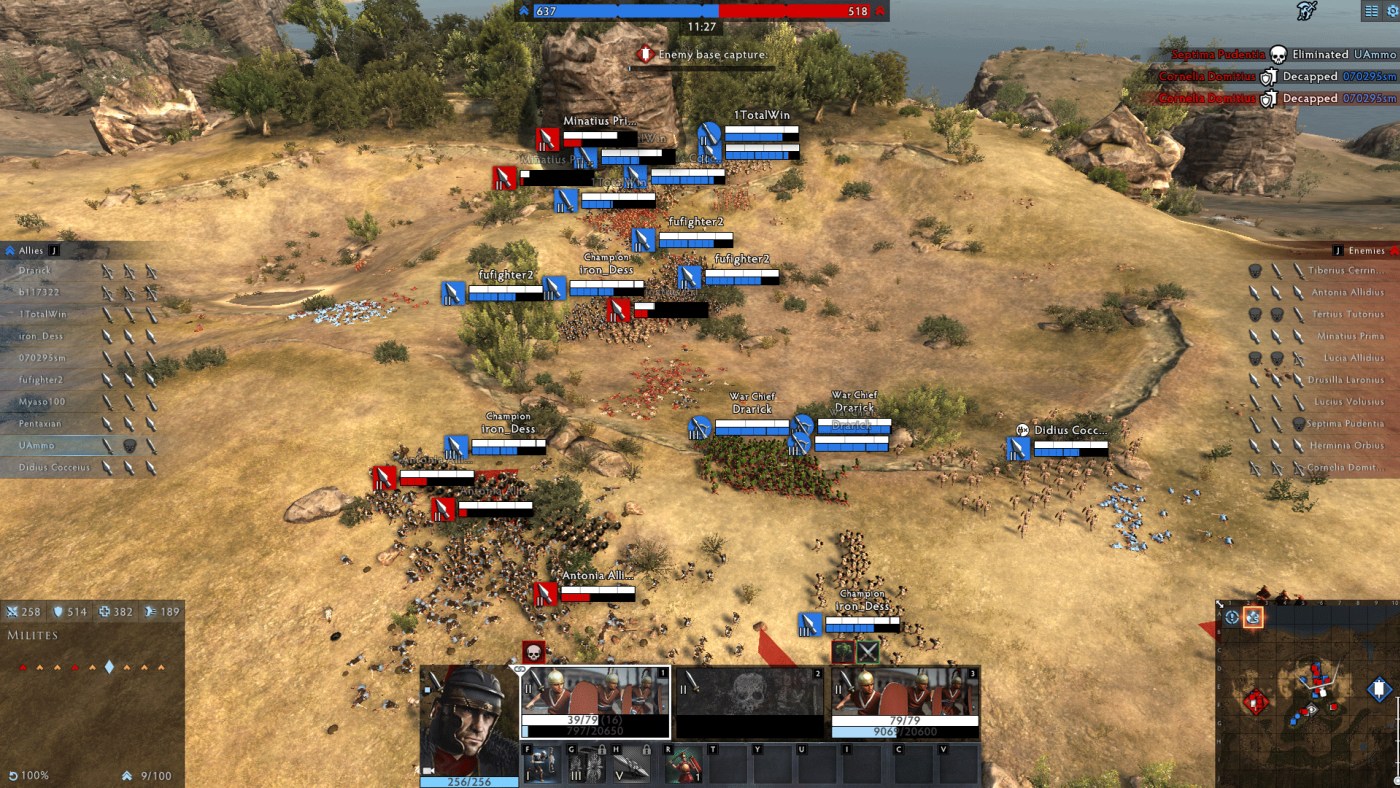
Conversely, using broken sight-lines to squeeze a unit past enemy lines, either for a flanking maneuver or an all-out sneak capture, offers an exciting new way to play around the battlefield. It’s power is tempered somewhat by an extremely long point-capture time, which generously alerts defenders that their strategic point or city center is being captured. Fair, though, as you wouldn’t want sneak capture to be a dominant strategy in a game built around combat.
Mechanics so complex as Total War‘s can, however, be frustrating when working as part of an unskilled or uncoordinated team. Little things like friendly-fire from archers, which in-and-of-itself adds strategic depth to the title, can be murderous in pick-up games where you aren’t communicating with teammates. This is a limitation of the community though and not of the game itself. Such mechanics are actually brilliant additions to the gameplay when you’re playing with people who understand them.
The inherent strategy of ARENA‘s combat systems is augmented and diversified by the suite of races on offer. Each race has its own strengths and weakness which compliment and counter those of other races. The Barbarians, for example, specialise in cavalry and are therefore most useful for flanking, charging and running down fleeing enemies. The Romans are often heavily armoured and are fantastic for controlling a space and defending a choke point, while the Greeks blend powerful infantry and archers to make up the human bulk of your fighting force.
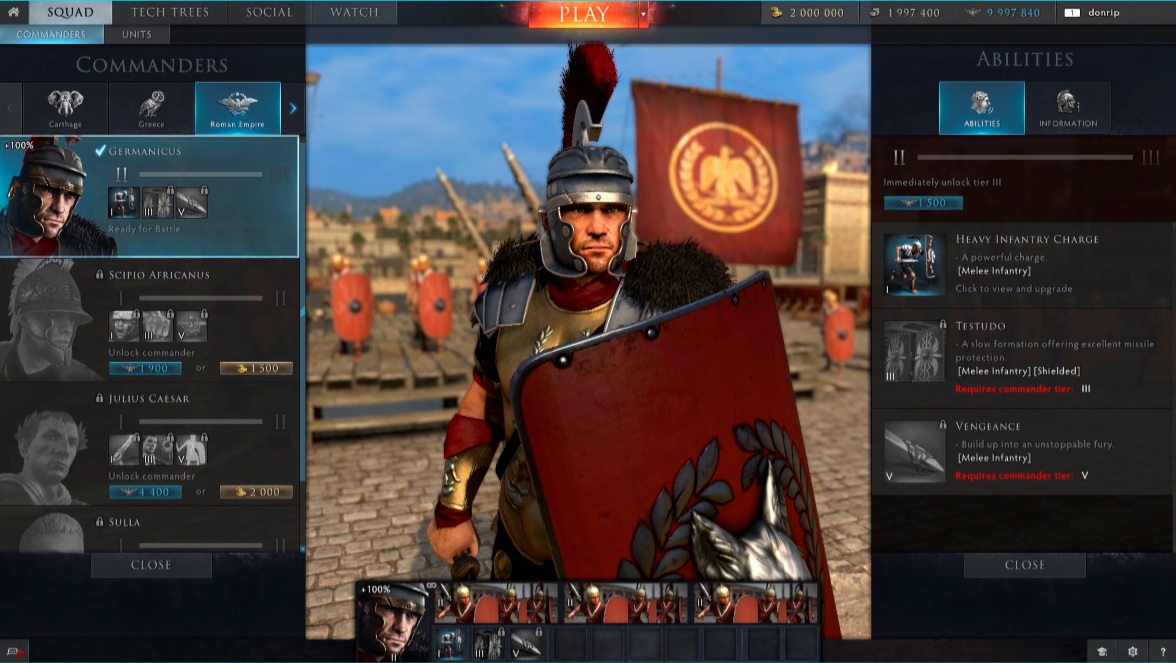
Alongside unit specialisations, each race will offer a number of unique Generals, each with their own active and passive abilities that further enhance a particular play-style or unit composition. These are subtle changes though, and gameplay doesn’t differ enormously from General to General.
As you progress through the Commander Tiers (levels, basically), you’ll unlock more attributes for each general as well as a huge number of new units and customisations for existing units. While this is where the meat of the game’s progression system comes from, it has the adverse affect of homogenising the races, which lose their unique identity when comparable units become available in each branch. It’s an issue that will take greater hold as you progress further along the tree.
The other issue here is that the vast majority of these upgrades can be accelerated, or completely skipped, by paying real money for in-game Gold. While it isn’t the most oppressive micro-transaction model we’ve ever seen, in that you can eventually unlock almost everything for free, it is a little disheartening to see Creative Assembly allow a system that will bring imbalance to a series that has always been adored for it’s strategic depth.
The reality is that spending money means you’ll have better soldiers sooner than your rivals. It isn’t strictly pay-to-win, but it is pay-to-win-now-rather-than-after-months-of-grinding. Let me tell you now, the upper tiers of these unlocks are SLOW.
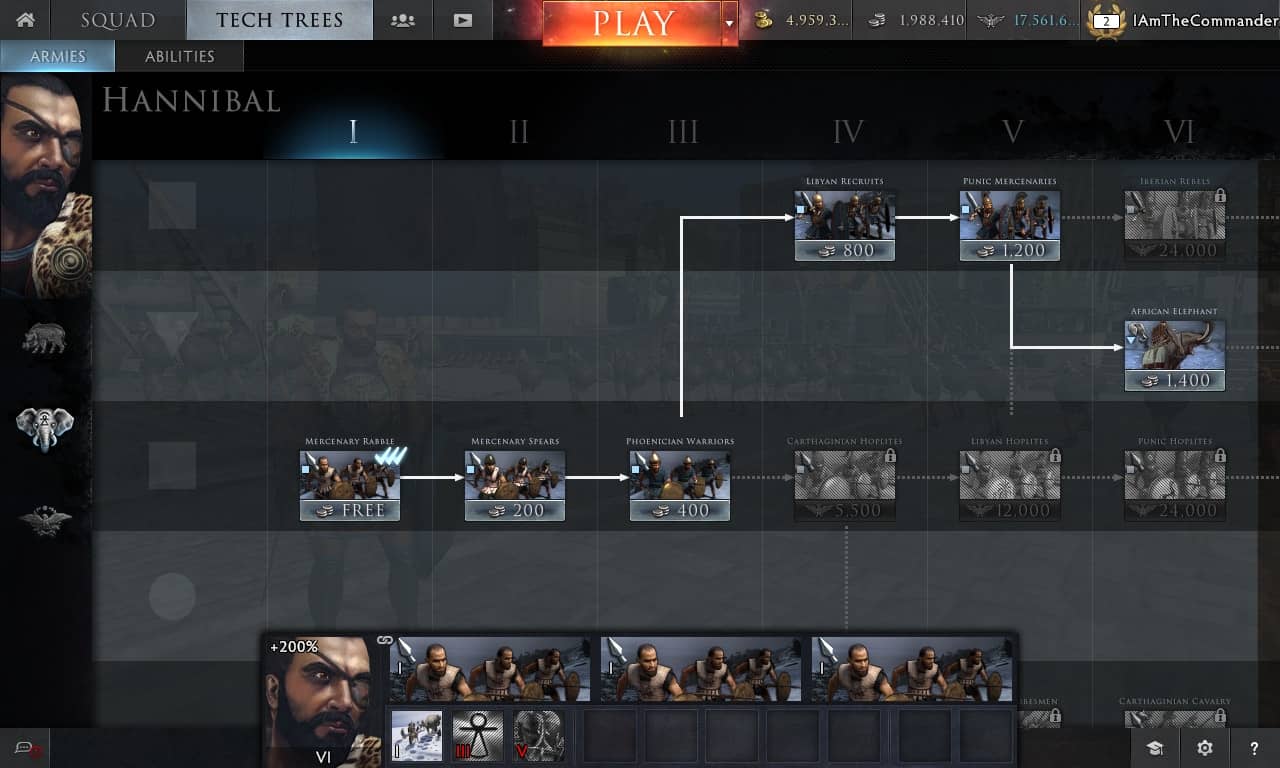
The pay-to-advance model gives off the idea that this is less a title for the strategy hardcore who have made possible the series’ 18-year run, and more a quick grab at the easy mtx bucks of young, competitive MOBA fans who’ll be with the game for a few months before moving onto the next Twitch phenomenon.
Look, the game is free, so it undeniably offers exceptional value at no cost. It just feels, though, that the Total War soul has been sold. Additionally, while ARENA is fun, it’s not very deep or complex as a standalone game, and would have been better made as a fleshed out multiplayer mode in the next actual Total War installment.
I have a feeling that Total War: ARENA will cause itself a problem by disenfranchising Total War‘s die-hard fanbase the very first time they’re pitted against someone who’s spent money on the game. I guess we’ll have to check the player count in six months to know for sure.
- Great value at no cost
- Streamlined, dynamic combat
- Tactics amplified by teamwork
- New mechanics are powerful and worthwhile
- Pay-To-Advance ruins strategy
- Races are same-ish once upgraded

